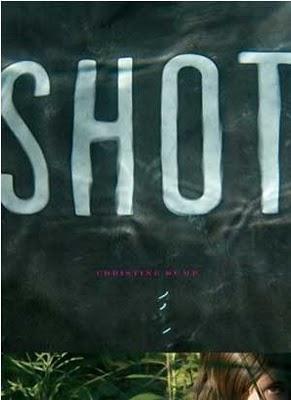Shot

It seems like it has become very fashionable for poetry collections to have short and ambiguous titles. We are long past the era where poems’ titles were incredibly detailed, as in “To my Lover, Upon Discovering that I Forgot to Do the Dishes and Churn the Butter. Autumn 1864.” I was drawn to Christine Hume’s Shot because it sounded promising, between the edgy title and the vague descriptions I could find through online previews. Her work lives up to my expectations.
When read aloud, Hume’s poetry has a certain melodic quality, by turns both jarring and soothing. This skillful placement of words goes hand in hand with an ability to create rhythm that evokes action, as in this phrase that is reminiscent of a failed attempt to start a car: ”My pulse stuck to the signal: turnoverturnoverturn.” An engine can almost be heard turning over–and even if that’s not the image Hume was shooting for, that’s just an example of the way this work is open to interpretation.
The recurring symbols in this collection of poetry are very decidedly feminine: night, moon, and darkness are all portrayed with feminine characteristics, such as wearing makeup or having skirts or female genitalia. Most pronouns are female, particularly when describing a character that seems integral to the poem in a positive manner. A rebellious edge sneaks into some of the poetry too, without being too specific as to its target. The poem “Um, Um...” starts out: “You may pound this night as much as you please/ You will never pound into me what you think.”
The only weakness is that the abstract personification of both objects and concepts occasionally borders on the obscure. Nontraditional uses of parts of speech make for interesting reading, but at a certain point it becomes almost distracting. Beautiful imagery sometimes results from this seemingly random pairing of words seventy percent of the time, however.
Some feminists in unquestioning support of women’s reproductive rights might find the detailed and rather opinionated narrative of the first section slightly unnerving: it’s a dialogue between a pregnant woman and her fetus. That can be considered under the catch-all of poetry’s ability to be random, to say one thing and mean another. Sometimes metaphor makes for objectivity. All things considered, this collection of poetry was mind-bending and a celebration of the feminine, both dark and light aspects.